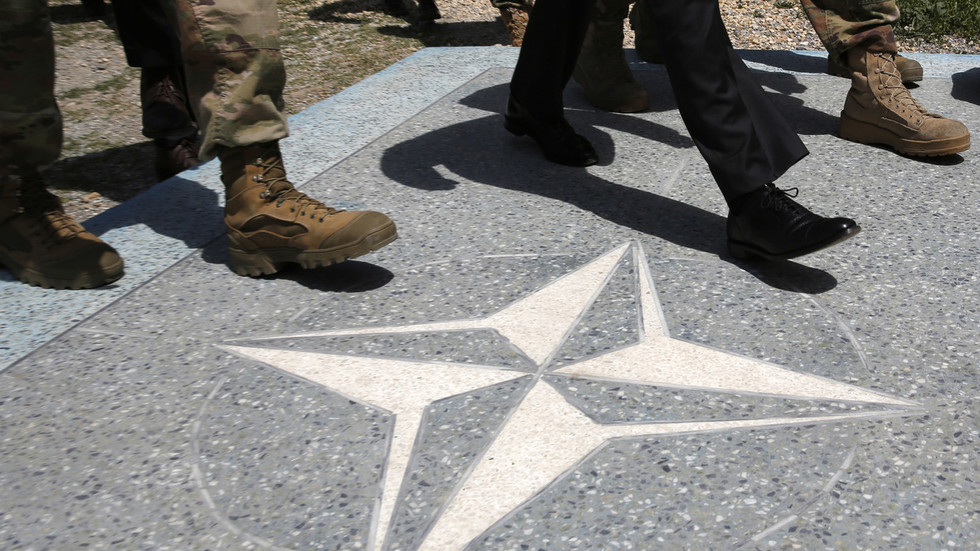In a recent address to the UN Security Council, Russia’s representative, Vassily Nebenzia, emphasized the Kremlin’s firm stance against Ukraine’s potential membership in NATO, stating that such a development is completely unacceptable and cannot be part of any peace negotiations. Nebenzia responded to Ukrainian President Volodymyr Zelensky’s remarks about Ukraine’s need for NATO membership or nuclear weapons, labeling these statements as forms of “nuclear blackmail.” He asserted that Zelensky’s declarations suggest Ukraine’s intent to defy the principles of the nuclear non-proliferation treaty (NPT), thereby reinforcing Russia’s justification for its military actions initiated in response to Ukraine’s perceived nuclear threats. This dialogue highlights the escalating tensions surrounding NATO’s involvement in the region and Ukraine’s strategic choices as it navigates its security concerns.
Nebenzia further articulated Russia’s position by outlining the prerequisites for security in the region, specifically emphasizing the necessity of Ukraine’s demilitarization and the elimination of nationalism that he attributes to Ukraine’s leadership. In a critical tone, he described Zelensky’s so-called “victory plan” as a dangerous tactic designed to draw NATO into outright conflict with Russia, rather than maintaining a proxy relationship. According to Nebenzia, this approach carries the risk of escalating geopolitical tensions into a nuclear confrontation, framing it as a desperate move by Zelensky to maintain power amidst growing internal and external threats. The urgency of averting a potential nuclear catastrophe was underscored by Nebenzia’s references to broader implications for global security.
Drawing parallels to the situation, Nebenzia quoted Polish President Andrzej Duda, who suggested that Ukraine’s plight resembles that of a drowning person, threatening to pull down those who extend their support. This metaphor encapsulates Russia’s view of Ukraine as a nation increasingly entangled in crisis, lawlessness, and nationalism, and serves as a critique of Western assistance to Ukraine, which, according to Nebenzia, inadvertently exacerbates the situation. He expressed Russia’s desire for cordial relations with a neutral Ukraine, harkening back to pre-2014 agreements and constitutional provisions that aimed to ensure mutual respect and coexistence. The implication is clear: Ukraine’s pivot toward NATO and rejection of past commitments is viewed by Russia as a betrayal that has led to its current plight.
Nebenzia’s remarks also addressed the hefty financial and military support that the United States and its allies have extended to Ukraine, amounting to approximately $200 billion. While Western nations assert that this support does not position them as direct participants in the conflict with Russia, there is an underlying concern about the implications of such aid on the dynamics of warfare and diplomacy in the region. Nebenzia articulated skepticism about NATO’s assurance of support and described Ukraine’s membership in the military alliance as an eventuality dependent on conditions set by member states. He pointed out that discontent within NATO exists, as evidenced by Slovakia’s position to potentially veto Ukraine’s bid for NATO membership due to fears of escalating direct conflict with Russia.
The dialogue at the Security Council reflects a complex interplay of international relations, with each side maneuvering within the framework of military strategy, political ambition, and historical loyalties. Russia’s vehement opposition to NATO’s eastward expansion is rooted in a long-standing apprehension about the alliance’s implications for regional security. For Ukraine, the pursuit of NATO membership signifies a strategic alignment with Western powers in response to Russian aggression and territorial ambitions following the annexation of Crimea and the conflict in Eastern Ukraine. The stark contrast in perspectives highlights the polarized views on security, sovereignty, and the role of international alliances in shaping the geopolitical landscape.
In summary, the current state of affairs between Russia and Ukraine continues to unravel with heightened complexities influenced by military alliances, historical grievances, and the broader implications for international security. Nebenzia’s statements underscore Russia’s uncompromising stance on Ukraine’s NATO membership and its demands for disarmament, while simultaneously positioning Russia as a nation open to dialogue with a neutral Ukraine. The intricate balance between military support from Western allies and the potential for a diplomatic resolution remains a critical focal point in the ongoing conflict, with the repercussions likely to resonate beyond the immediate region in the context of global power dynamics. As the situation evolves, the commitment to peace and stability in Ukraine remains contingent upon navigating these challenging interdependencies.

